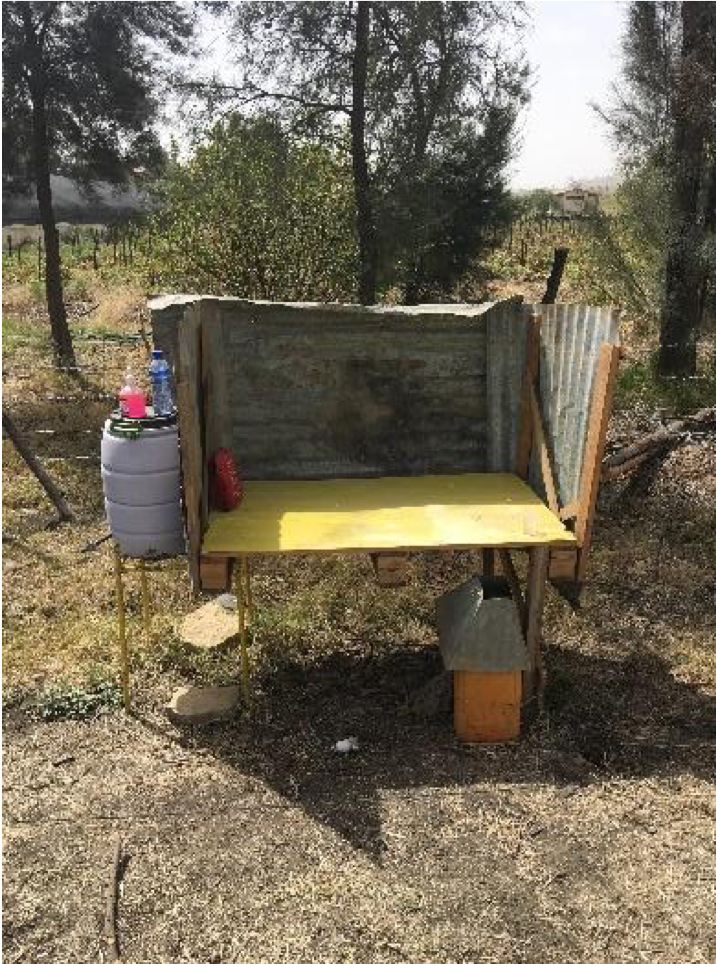
While meeting with Mekelle University in Ethiopia, we were able to speak with two members of the Department of Dryland Crop and Horticultural Sciences in the College of Dryland Agriculture and Natural Resources: Teklit Yohannes Hailu,  the Department Head, and Abraha Gebretsadkan Berhe, Assistant Professor In Nematology/Plant Pathology. Our team discussed our general project idea with the researchers and received feedback regarding the impact it would have on the region. They shared that rust causes devastatingly low wheat and garlic crop yields year after year in the region and a project like ours would be greatly appreciated and used.
the Department Head, and Abraha Gebretsadkan Berhe, Assistant Professor In Nematology/Plant Pathology. Our team discussed our general project idea with the researchers and received feedback regarding the impact it would have on the region. They shared that rust causes devastatingly low wheat and garlic crop yields year after year in the region and a project like ours would be greatly appreciated and used.
Wheat in particular is a crucial crop in Ethiopia because of its use in the production of injera, a staple food in the Ethiopian diet. Wheat is consumed in all three meals of the day for 80-85% of rural Ethiopians. Most of their wheat production is for domestic use as it is consumed or sold to other families and friends. As a result of this, rust infections affect the local community by harming food security alongside creating disastrous economic losses. The researchers noted that rust contributes to 30% of food insecurity in Ethiopia by decreasing yields by an average of 50%. In extreme cases, entire fields of crops can be destroyed.
The devastation caused by rust is exacerbated by the lack of education and resources within the community. Farmers often apply insecticide or a lethal dose of fungicide to crops affected by rust. Berhe also noted that many farmers lack proper protection and training while spraying and disposing of pesticides, resulting in damaging effects to their health and environment. They also lack access to seeds with novel resistance genes, forcing them to use recycled seeds, which in turn increases susceptibility to rust and other fungal infections. Other factors contributing to the prevalence of rust noted by both researches were wind and temperature. When the conditions of both are in a certain range, rust becomes a large issue.
The researchers stated that improved rust detection would be an invaluable tool for farmers by allowing them more time to purchase and apply fungicide. It would allow them to properly allocate resources and prevent devastating losses. In addition to these benefits for solitary farmers, the researchers notes that if we were to connect our hardware to the internet, it would be beneficial for the government and researchers by allowing them to track the spread of rust. Such information would help the government better allocate resources to farmers to help them protect their crops.
When discussing methods of sharing information between farmers, the researchers noted that the farmers tended to organize within their individual communities. These organizations thrive because the farmers share information and resources among one another. Berhe suggested that the groups would be the best outlet to spread information about improved farming practices and to distribute resources. More specifically, he mentioned that the groups could be used for promoting safe fungicide application and introducing our device.
We visited the Kalamino demonstration farm run by Cultivaid, 
Cultivaid intern demonstrates planting method

Safe chemical mix station
Common fungicide for rust
Eggplant rust
Cultivaid expressed interest in out device and specified that it could be better used by them if data could be made available to department officials. This would allow large organizations and the government to track the spread of the fungus and allocate resources to combat the spread of fungal infections. They also mentioned that farmers would benefit greatly from our device and an educational program regarding fungicide use. The combined efforts of both would ensure that farmers apply fungicide effectively to maximize the return on investment.
